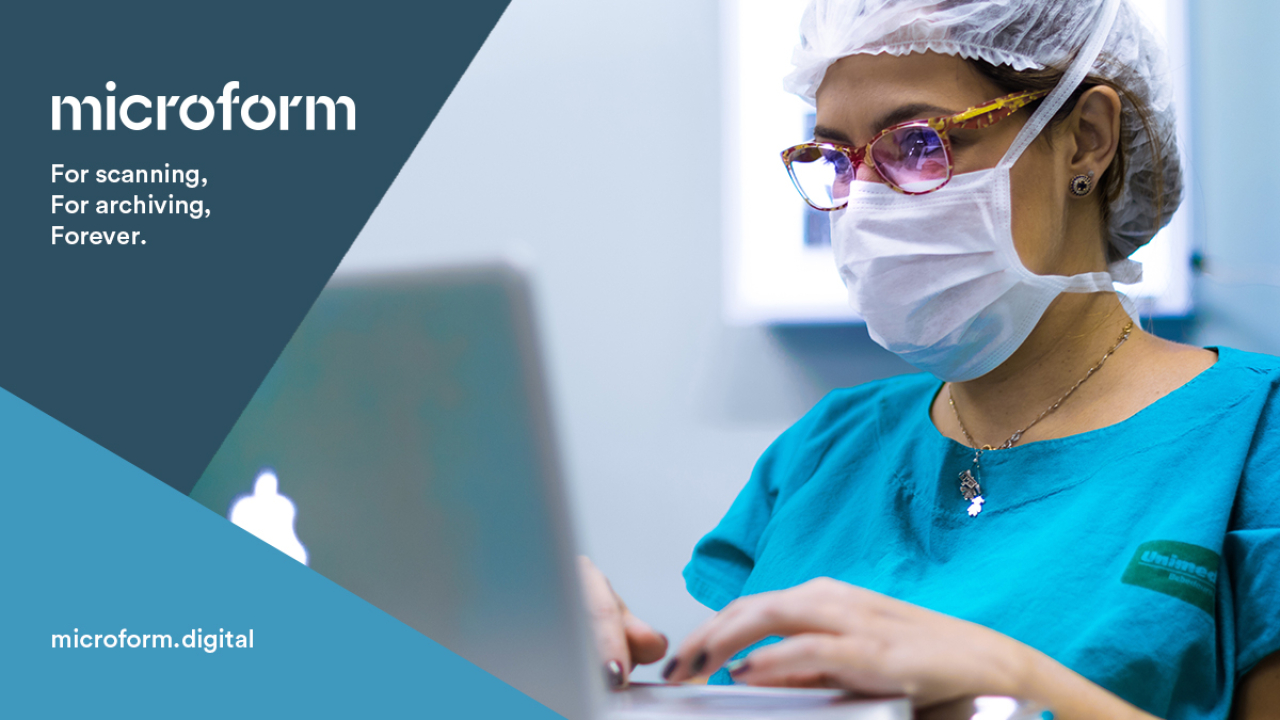Why a paperless NHS is the future of the NHS

In February 2016 the NHS announced that it was going to make the best use of technology and invest £4 billion into its processes.
Setting aside money for areas such as electronic records and appointments, it is hoped that the funding will remove outdated technology such as fax machines, improve cyber security and data consent, and eradicate its reliance on paper.
Once all these systems are in place it is hoped that the NHS will save billions in the years ahead by using electronic data and systems instead of time consuming printing and filing.
Here at Microform, we have assisted GPs, dentists, and health organisations throughout the UK in their efforts to cut paper based activities.
But how does a medical office, practice, or hospital save money by cutting down on paper?
Improved efficiency
When it comes to filing and sorting, Microform can cut down file retrieval times by thousands of hours depending on the size of an organisation.
What's more, our state-of-the-art scanning machines are able to scan an array of medical files and documents, meaning that that health institutions and organisations can convert a large chunk of their processes to digital systems.
As our document management systems are completely bespoke to each client that we work with, health organisations have the say and authority over the systems that we install – so it works specifically for their needs and requirements.
Greater data protection and security
Our security measures are amongst the most rigorous in the industry and are ISO27001 accredited.
On a long term basis, medical scanning offers our clients long term document safety and security.
As we all know, paper documents and files can be easily destroyed by environmental conditions and accidents such as fires and floods, but as digital files can be saved on a cloud-based storage system, it means that digital records are exempt from these dangers.
What’s more, our storage systems are also bespoke, and the security we install is curated to the client, so that permissions and access is restricted only to the people that require it.
We can also set up a cloud management or document management system so that it can be not only accessed anywhere in the world, but if need be, only one place in the world, which means that the system can only be opened from a single IP address.
Financial savings
As some of the companies we work with are able to cut down thousands of hours a year from improved filing and document retrieval times, and medical organisation are able to save large amounts of money from the time they are able to save on a day-to-day basis.
This is because once scanned, the files are automatically sorted and can be instantly searchable by a number of factors including file and patient names, IDs, reference numbers, and folders.
Of course, one of the very many questions that we get asked is, “what kind of files do you scan?”
Our state-of-the-art machines are able to scan a range of administrative and medical documents including:
GP medical records
Immunisation records
PCT records
Endoscopy records
X-ray files and records
Sterile Services Unit records
A&E registers
Birth registers
Theatre registers
Medical notes
For more information on what medical document scanning can do for the NHS, or any other medical organisatio, check out our medical document scanning page or contact us on 01924 825 700.